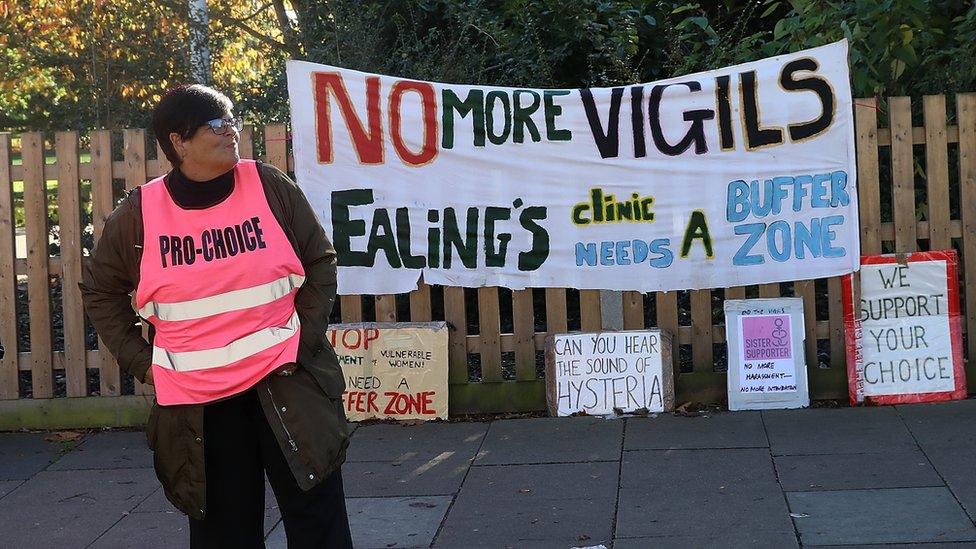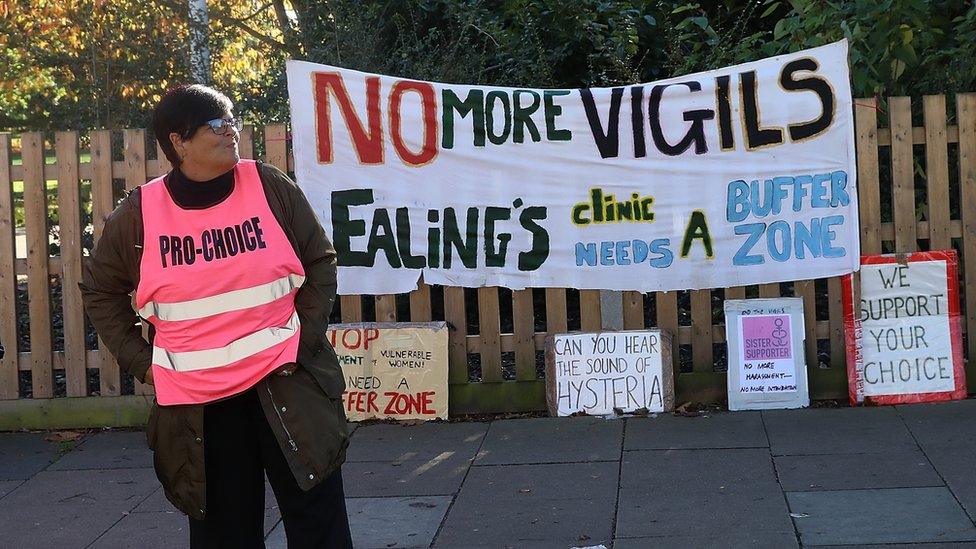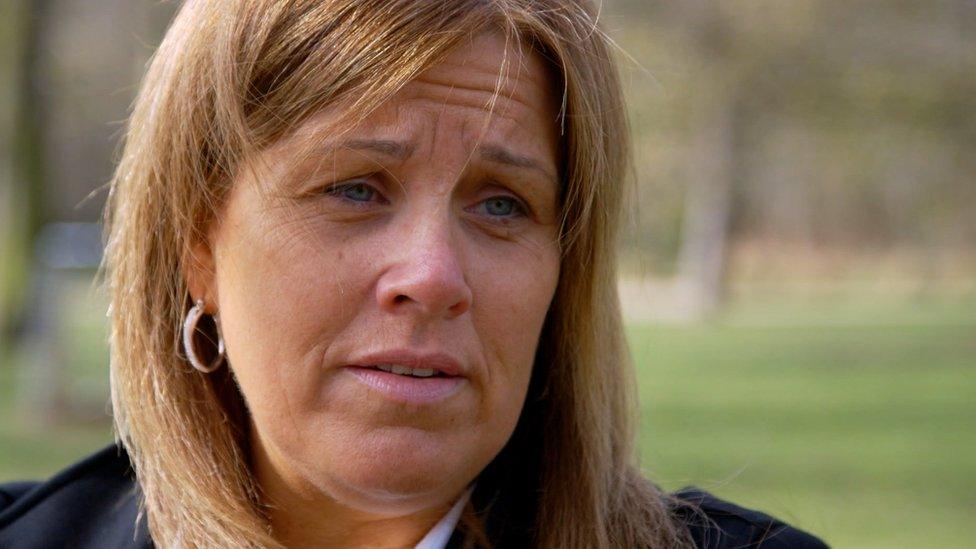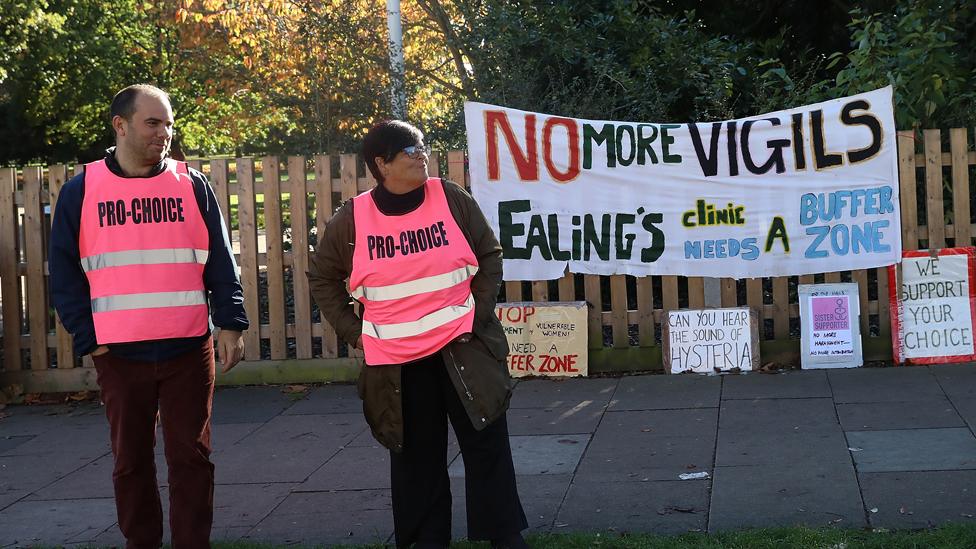James Cleverly vows to ensure women getting abortions feel safe
- Published

Home Secretary James Cleverly has said he is committed to ensuring women feel safe accessing an abortion, after the government was accused of watering down plans to prevent protests near clinics.
A law to introduce buffer zones in England and Wales was passed last May.
But under draft Home Office guidance, external, activities including "silent prayer" would still be allowed.
Campaigners are worried this will mean women are still at risk of being harassed outside clinics.
Earlier this week, Labour MP Rupa Huq and Conservative Sir Bernard Jenkin wrote to Mr Cleverly calling for an "urgent review" of the draft guidance, which was published by the Home Office before Christmas and first reported by the i newspaper, external.
In a response, seen by the BBC, Mr Cleverly said the guidance was drafted before he was made home secretary in November.
He said he approved the launching of a public consultation "within days of coming into office" to make sure "there was no further delay to the process".
"It is clearly unacceptable for anyone to be harassed or distressed simply for exercising their legal right to access abortion services," he wrote.
"I am committed to ensuring that women in England and Wales feel safe and protected whilst exercising their legal right to access abortion services."
He agreed to meet the MPs to discuss their concerns, adding: "All views will be carefully considered ahead of publishing the final version of the guidance."
The consultation on the guidance closes on Monday, with the government previously saying it wanted the measures to be implemented from the spring.
In their letter, Ms Huq and Sir Bernard said they were concerned the draft guidance appeared to contradict what MPs voted for last year.
Under section 9 of the Public Order Act, external, harassing, obstructing or causing distress to anyone attending an abortion clinic, within a 150 metre "safe access zone", was made a criminal offence carrying an unlimited fine.
Influencing someone's decision to access an abortion within the area is also an offence under the act.
The measures had cross-party support, although they were opposed by some senior politicians including Minister for Women and Equalities Kemi Badenoch and Mr Cleverly's predecessor as Home Secretary, Suella Braverman.
The law does not include any exemptions for silent prayer, with MPs previously voting against a move to specifically exclude this from the scope of the legislation.
However, the draft guidance says silent prayer "should not, on its own, be considered to be an offence under any circumstances".
It also states: "The government would expect 'influence' to require more than mere mention of abortion or the provision of information. As such, informing, discussing or offering help does not necessarily amount to 'influence'."
Ms Huq and Sir Bernard wrote: "The framing of the guidance seems to us to very clearly discount the experiences and reports of women accessing abortion care, and instruct them that they should not feel harassed, alarmed, distressed, or influenced by behaviour which… is having precisely that impact."
The MPs added that they had been told by councils, police and abortion care providers that the draft guidance "would do nothing to address the ongoing issue of anti-abortion harassment outside clinics".
The British Pregnancy Advisory Service (BPAS), which is the leading provider of abortion advice and treatment in the UK, has said it is "shocked" by the government's attempt to "gut a law which a majority of MPs voted for".
The anti-abortion group Christian Concern has previously commented on the government's draft guidance, saying it "acknowledges that buffer zones must be interpreted in line with human rights, including the right to manifest religious beliefs, the right to freedom of expression and the right to freedom of assembly and association".
- Published21 November 2023

- Published10 April 2018

- Published18 October 2022
